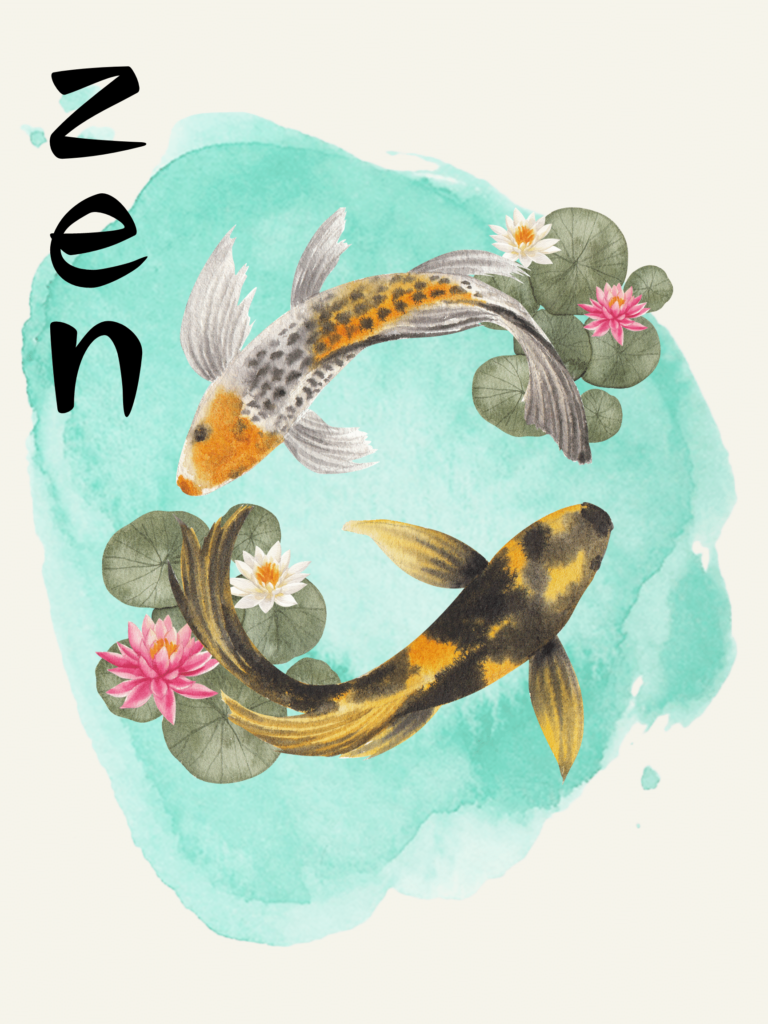
What is Zen Meditation
Zen meditation is an advanced technique of meditation that focuses on the practice of awareness and concentration. Zen meditation can allow one to comprehend more profound concepts and ideas of their mind and soul.
It’s simply the act of sitting and being present. The big difference between Zen meditation and other types of meditation is that it’s not about creating new thoughts, relaxing, or clearing your mind. It’s about doing the exact opposite! Our thoughts will always be there, coming in and out as they do.
If we try to control our thoughts or force ourselves not to have them, we will ultimately end up with an upset mind. So what is the secret to meditating if it’s not about stopping all thoughts? Read on!
The key points covered in this post:
- What is Zen?
- Introduction to Zen Meditation
- Core Principles of Zen Meditation
- Life lessons from Zen masters
- Selective Zen Quotes to get you inspired
What is Zen?
Zen is a way of life to bring you happiness, peace, and understanding of the world. Everyone can train their minds to stay alert and relaxed while engaged in daily activities.
Zen does not explain anything, and Zen does not analyze anything. It merely points back to our minds so we can wake up and become Buddha. ~ Zen Master Seung Sahn
Zen is any practice that brings harmony between body, mind, and spirit. From a Western perspective, it is natural to try and explain Zen in words because the West loves to analyze and define it. But this is as impossible as defining the wind or describing a color to a person born blind.
Looking at the radiance and calmness of Buddha, one of the Sadhus asked him, “Who are you? Are you God?”
Mind Full to Mindful
He said no. They asked, “Are you a saint?”
He again said no.
“Are you a celestial being?” he again uttered no.
“Then what are you?”
Buddha replied, “I’m awake.”
Zen’s essence cannot be explained or understood but must be “experienced.” While all Buddhist traditions emphasize the importance of meditation, Zen Buddhism is unique in its insistence on meditation as the primary way for people to directly experience their Buddha nature.
Origin and types of Zen meditation
It is rooted in the ancient practice of seated meditation, or zazen, a technique by Bodhidharma 5th century.
Zen meditation is an ancient Buddhist meditation that was initially developed in China during the Tang Dynasty in the 17th century, also known as zazen. Zen origins from the Chinese word Ch’an, ‘Dhyana’ in Indian terms, which means meditation or concentration.
Because of the significance of Zen meditation, the practice spread through Buddhist missionaries, and the knowledge of Zen meditation eventually spread across various parts of the world, including Korea, Japan, Tibet, Nepal, and others. In 100, Daoyun, a Chinese Buddhist monk, wrote Records of the transmissions of the lamp. And this compilation is considered to be the guiding scripture of Zen meditation.
Bodhidharma established the legacy behind Zen meditation. Although it is not sure that he existed, he is said to have arrived in China around 500 BC.
Zen meditation aims to develop a deep understanding of the self and reality through introspection and contemplation. Central to this goal is the belief that all beings have an innate Buddha nature or capacity for enlightenment.
There are two main types of Zen meditation:
- Zazen
- Koan introspection.
A zazen is a form of seated meditation in which practitioners maintain a correct posture and focus their attention on their breath. Koan introspection is a form of meditation in which practitioners contemplate a short story or phrase (known as a “koan”) that Zen masters have passed down.
Both Zazen and Koan’s introspection can be practiced unilaterally or in groups. Participants usually sit facing one another in silence when practiced in groups before discussing their insights.
While Zazen and Koan’s introspection is a proper form of meditation, they are not the only way to achieve enlightenment. Many Zen masters believe there is no single path to enlightenment; each individual must find their way.
What are the core principles of Zen Meditation?
Bodhidharma laid four principles when discovering and giving birth to Zen Buddhism. And therefore, Zen Buddhism works based on these 4 Bodhidharma writings.
- A particular transmission outside the scriptures.
- Not relying on words or letters.
- Pointing directly to the human mind.
- Seeing true nature is becoming a Buddha.
Zen master Bon Soeng says, “Zen meditation means asking the question, “What am I?” staying with what I don’t know and observing from a place of not knowing, observing the moment, what’s happening right now?”
Zen is nothing but contemplating our existence and letting go of the answers, and letting the answers come to us. Letting go is the nature of life.
We focus on the breath. We focus on both inhalation and exhalation. Each time a thought arises, we are supposed to return to the breath -this is the leading practice of Zen.
A Zen mind is cultivated by following One’s breath, allowing thoughts to come and go without clinging to them.
Zen anecdote based on the teachings of Chuang Tzu
Chuang Tzu, a Chinese philosopher, described a story that proposes the central teachings of Zen Buddhism.
A man was very passionate about his boat and would take care of the boat like his baby. And once, when the boat was standing on the shore, the boat was suddenly hit by another boat. And out of anger, the man started to yell at the boat driver that hit his boat. He screamed and yelled and sneaked inside, but he found no boat.
He then had a realization. All this while he thought the other person was responsible for his anger. While the offense was inside him always, when the situation came, he was just triggered. If you could empty your boat, nothing in this world could harm you. Read the empty boat.
Zen is not about achieving a state of relaxation.
Zen is not about achieving a state of relaxation or quieting your mind. It is about learning to be present at the moment and letting go of your thoughts and preconceptions about reality.
Zen is not about quieting your mind.
Zen is not about controlling or focusing the mind on quietening down. In one of his writings, meditation expert Om Swami says it is not silencing your thoughts in the restless mind but another level of silence. In the usual silence that we experience, it is just shutting down the ideas in our minds. But the silence we attain in Zen is non-judgmental, non-observing, and non-focusing. And it is the highest state of bliss.
The three schools of Zen
There are many schools of Buddhism, and each may approach Zen differently. But there are mainly three known schools of Zen, and each may approach Zen differently. Each sect of Zen describes the path of meditation practice and the tribes that especially follow the zen school.
- The Soto Sect – The Soto sect is the largest in the school of Zen. The Soto sect is popular among artists, poets, and people from the lower classes. They practice the original form of zen meditation known as zazen, which is facing a wall or curtain during the meditation practice.
- The Rinzai School – This kind of seated meditation involves solving a statement or a paradoxical statement that initially had no solution. It is called a koan. A classic example might be, “When both hands clap, you hear the sound. Listen to the sound of one hand clapping.” The disciples must go into deep meditation and find answers to these questions. The Samurai caste practices this type of school.
- The Obaku Sect – It is the smallest of the sects. And the Obaku sect was formed by a group of Buddhist monks from China and Japan from the Manpuku temple. This school tends to practice chanting sutras in the Chinese language during meditation, leading to transcendence.
What is a Zen mind?
Hana wa hiraku bankoku no haru
When a single flower blooms, it is spring throughout the world.
This is Zen in a nutshell. Our whole world lights up when our mind is at peace when we are happy within. And, it’s all doom and gloom if our mind is indisposed. When the flower of mind blooms, it is spring all around. The question is how to ensure that this flower blossoms and remains in bloom. How to care for this flower?
The Zen Mind
A Zen mind is a calm and clear mind that is not attached to thoughts or emotions. It is a mind that is open to new experiences and willing to let go of old beliefs.
The Zen mind is meditative; a Zen mind is a state of calmness whose actions are guided by intuition rather than fear. As aforementioned, this state of meditation is silent, non-judgmental, and a form of ultimate bliss.
Layers bind us, social masks put on by society. The community keeps them in a box of conditional reflexes as soon as a child is born. And that is why the child learns to love conditionally and knows how to limit himself from love and compassion.
To awaken yourself from these conditional reflexes, you must dig into the deep layers that society has constructed for them, unmask the social layers and awaken the authentic power within. Zen meditation helps uncover these layers and allows us to be true, accurate, and original humans free from society’s bondages and limitations.
“Zen mind is one of those enigmatic phrases used by Zen teachers to make you notice yourself, to go beyond the words and wonder what your mind and being are. This is the purpose of all Zen teaching—to make you wonder and to answer that with the deepest expression of your nature.” –
Introduction to Zen Mind, Beginner’s Mind by Shunryu Suzuki Roishi.
Life lessons from Zen masters
Zen says, just let me be in the present moment, that even breathing is a blessing. If I can’t be happy with what I have now, I can never be happy with whatever I may have in the future. You will have at least one difficult person in your life every time and under any circumstances. You will face at least one big challenge. And you will have to deal with at least one adversity, whether mental, physical, emotional, psychical, psychological, or spiritual. It is very much a part of life. But in all this, to be able to flow is Zen.
Mind full to Mindful
- Sometimes, life will offer you burning coal when you are least prepared. Worse, when you don’t even deserve it. Don’t burn yourself with that unexpected offering. Instead, use it to strengthen your position, to forge ahead. It is neither a walk in the park nor comes naturally to us, but it can be learned and mastered. I say it’s hard work because a momentary lapse of mindfulness is enough to make us forget all the wisdom in the world, and we end up grabbing the cinder hurting ourselves and everyone at whom we may hurl it.
Source – The gifts of hurt
- Zen masters teach us that the only moment we have is the present. If we’re always living in the past or future, we’re missing out on life.
- Another life lesson from zen masters is to accept things as they are. That doesn’t mean that we should settle for less than we deserve. Instead, it means we should accept life on its terms and not try to force it to conform to our expectations. By accepting life as it is, we can find peace and happiness.
Some more:
- “The only way to find true happiness is to risk being completely cut open.” This reminds us that we need to be vulnerable to experience true happiness. We can genuinely connect with others and feel alive by taking risks and putting ourselves out there.
- “You should sit in meditation for 20 minutes every day – unless you’re too busy; then you should sit for an hour.” This life lesson reminds us that we must make time for stillness and reflection, even amid a busy life. By taking just a few moments each day to be quiet and still, we can connect with our innermost selves and find peace and calm amidst the chaos of life.
- “There is no way to happiness – happiness is the way.” This life lesson reminds us that happiness is not something that we need to search for outside of ourselves. Instead, it is something we can find within ourselves simply by living life in the present moment with an open heart.
How to practice Zen meditation?
Zen meditation and the Awakening
A seeker approaches a master who is an expert in various yogic practices. The seeker asked, “What can I do to be enlightened?”
“Little more than what you can do to make the sunrise.” the master replied.
“What is the use of all your practices then?” the seeker questioned the master.
“To make sure you are not sleeping when the sun rises.”
Mindfull to Mindful
In his book, Mind full to Mindful, Om Swami fantastically describes this story. “Mastering a certain practice doesn’t mean that one has awakened, and it is to get a better handle on your thoughts and emotions,” says Om Swami.
Zen meditation calms the mind, gives clarity, and improves problem-solving abilities.
As described in the book, there are four types of meditation. And they are as follows.
Zazen meditation:
There are so many ways to adapt this method. For example, Shikantaza is created by Rujing, a monk in the Zen school of Buddhism, the same as the zazen meditation.
Steps to follow:
- Sit in a comfortable position. You can even set the alarm to decide how long you can meditate. Place a cushion for your comfort.
- When you meditate, if you choose to face a wall, ensure that your eyes fall to the bottom of the wall. You must position the cushion approximately a meter in front of the wall.
- The main thing to focus on here is posture. Your spine should be straight and let the air move freely in the diaphragm. Zen is primarily about posture and breath.
- Breathe deeply through your nose. There is a famous method you can implement according to Taoist techniques. Press the tongue against the upper roof of your mouth and tuck the chin forward. This elongates the spine.
- Close your fist, tuck the thumbs inside the fist and face the hands up so that the back of the hand touches the knees. You can pray to Buddha by implementing the Anjali Mudra with your hands and a bow to Buddha.
- Focus on the breath, both inhalation and exhalation. You can even count the breaths if you initially find it difficult to focus on your breath.
- Don’t think about anything, don’t visualize anything, don’t imagine anything. Don’t react to any thought. Just be present.
- It is natural to wander with thoughts and feelings. When disturbed by obvious thoughts and feelings, gently return to the breath or prana.
- After a few moments, sit back and relax for a few minutes.
Wall Gazing
Om Swami says that when you don’t feel calm enough to do zazen, you may want to do wall gazing. This method involves just sitting comfortably and staring at the wall. The wall reminds you to be grateful when you drift your mind from thoughts. And make you realize that you were supposed to be meditating. You can even carry this out with a rock. So whenever you are overwhelmed with thought, you can simply stare at the rock and return to the present.
The Zen tea ritual (Chado)
I was amazed when I read about this method in the book. Would you believe that drinking cuppa tea could be a meditation ritual? The Zen tea ritual is practiced in almost all the Zen monasteries.
The ritual’s main idea is to prepare tea, sit it, and drink it. That’s all you have to do. But the trick here is to be mindful while sipping on the tea. Be aware of the color, taste, hotness, thickness, sweetness, and everything. This mindful practice is known as the Zen tea ritual. This ritual begins with being grateful for the opportunity to taste the fantastic experience of the world.
Kinhin and Sleep meditation
While seated meditation becomes boring if done every day, you have an option to jump into Kinhin. Kinhin is a walking meditation, and it’s a type of mindful walking. Just as you have sipped the tea mindfully, take a mindful walk. You can observe any sensation or feeling while walking, and the idea is to be aware of that.
Similarly, sleeping meditation encompasses sleep posture. This method is handy for those who find it difficult to fall asleep. Be aware of your inhalation and exhalation and the sensations in your body as long as possible. You may gently fall asleep.
Source: The book Mind Full to mindful by Om Swami
Benefits of Zen Meditation
- Manage Stress, Anxiety, and Depression
- Boosts Self-Awareness
- Improves Emotional Balance, Patience, and Concentration
- Increases Memory and Creativity
- Builds Healthy Relationships, Improves Social Skills, and Increases Intimacy in Relationships
Zen quotes
Zen teaching provides undeniable value to this world. Zen masters took their entire life experiences and consolidated them into a single quote so we can understand Zen and life better. We present some famous Zen quotes by Zen masters to inspire you.
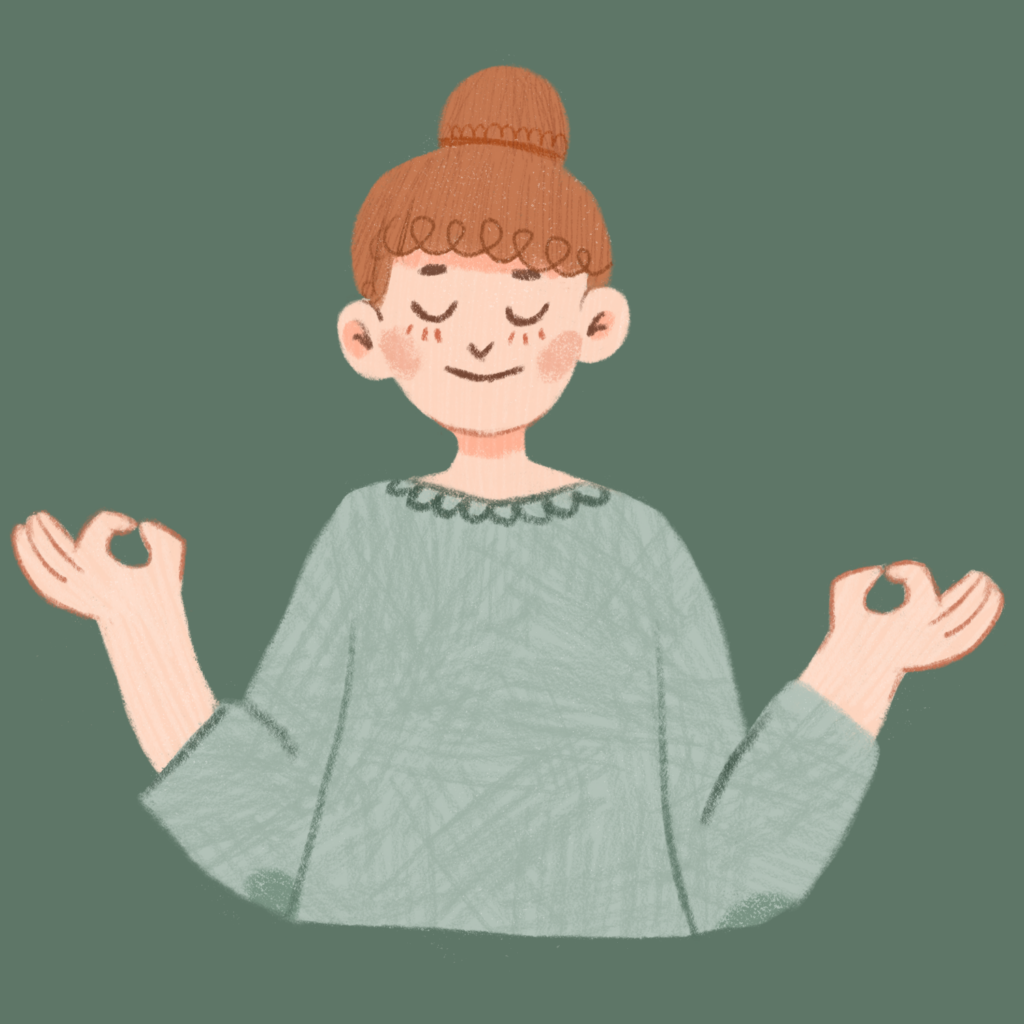
Throughout this life, you can never be certain of living long enough to take another breath.
– Huang Po.

The feeling that any task is a nuisance will soon disappear if done in mindfulness.
– Thich Nhat Hahn.

Zen is not some excitement, but concentration on our usual everyday routine.
– Shunryu Suzuki.

When thoughts arise, then do all things arise. When thoughts vanish, then do all things vanish.
– Huang Po.

To accept some idea of truth without experiencing it is like a painting of a cake on paper which you cannot eat.
– Suzuki Roshi

To seek is to suffer. To seek nothing is bliss.
– Bodhidharma

Have good trust in yourself. Not in the One you think you should be, but in the One that you are.
– Maezumi Roshi

Wise men don’t judge – seek to understand.”
– Wei Wu Wei

If you are depressed, you are living in the past. If you are anxious, you are living in the future. If you are at peace, you are living in the present.
– Lao Tzu.

To be beautiful means to be yourself. You don’t need to be accepted by others. You need to accept yourself.
– Thích Nhất Hạnh
Self Study to Practice Zen
For your contemplation and self study, here are some more useful resources to practice Zen:
- How to manage your emotions when you are hurt? Read the answer here.
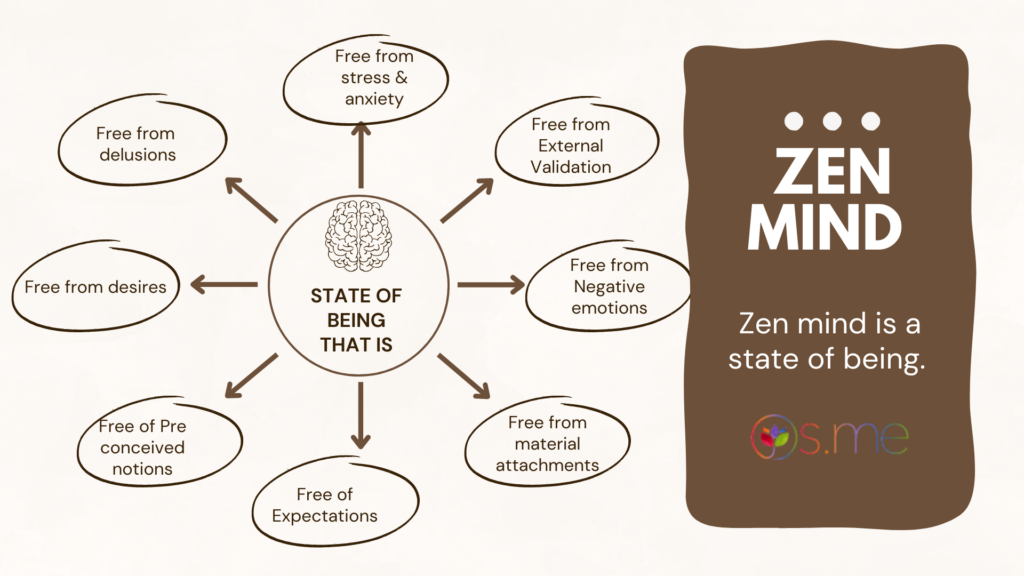
- How to build an attentive mind, free of mental, religious and intellectual constructs? Read the answer here.
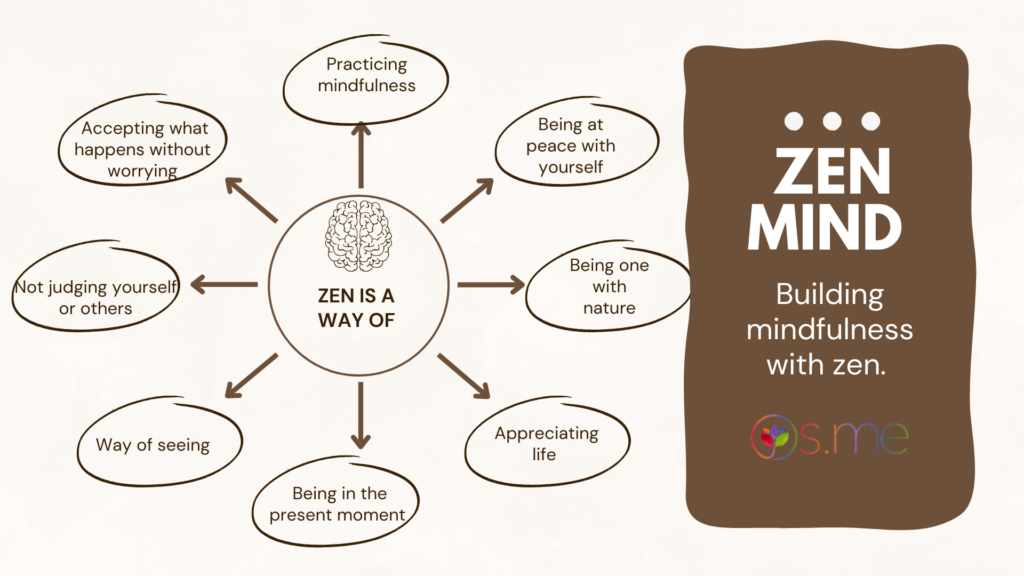
FAQs on Zen Meditation
How to practice Zen mindfulness?
Zen meditation is based on two main requirements. Posture and focus on the breath. Sit in a comfortable place, straight posture, and focus on inhalation and exhalation. Let any thoughts come to you and let them go. Gently come back to your breath if you feel distracted by thoughts. Practice this as long as you need to. You can set an hour aside for this practice a day to avail yourself of its benefits. Zen meditation should be done with patience and determination every day. Only then can you avail of its benefits.
Does Zen attempt to purify mind ?
Zen clarifies the mind keeping it calm and centered. The mind is always full of thoughts; sometimes, it overrides our daily life and affects our fundamental nature. And therefore practicing Zen meditation helps us to clarify the mind. And combat the negative emotions. It gives a breathing space for the mind full of thoughts and feelings. It lets the mind experience the silence from the noise of reality and subsides in the rest. And therefore, Zen meditation is said to purify the mind.
What is a Zen state of mind?
Zen state of mind is the state of pure awareness and bliss where one’s action is guided through intuition and guidance. This state of mind is non-judgmental, neither positive nor negative. This is the state where the ultimate joy is found. Zen state of mind is attaining transcendence yet being present along the journey. This state of mind is not activated just during meditation but manifests in our daily activities in the real world. Our actions, responses, reactions, and how we hold ourselves in situations will be visible.
Is Zen meditation mindfulness?
Zen meditation is often described as mindfulness too. This is because Zen meditation teaches us to focus on the breath, which helps us be in the present moment. Bringing the mind into the present moment is called mindfulness. Meditation, however, silences the mind with a mantra or a sutra. Anything that helps us to be present is nothing but mindfulness. This includes taking a mindful walk, sipping on tea, or reading a book. But meditation is much beyond the current, past, and future. It’s the transcendence where all these phases co-exist.
Can someone please help me find some books on Zen?
Zen flesh and Zen bones by Paul Reps and Nyogen Senzaki
Zen Buddhism: Selected Writings, An introduction to Zen Buddhism by D T Suzuki
Silence, Miracle of mindfulness,by Thich Nhat Hanh.
Who ordered this truckload of dung? Don’t worry, be grumpy; Kindfulness by Ajahn Brahm.
When things fall apart by Pema Chodron
The Hidden Lamp by Susan Moon
Read the os.me community recommendation of Zen books
How did I learn mindfulness from Bhagavad Gita and Zen Buddhism?
In Bhagavad Gita, Krishna tells Arjun that the action done without emphasis on the fruits of action is the right action and does not bind the person in any way. This is such a beautiful concept, and the same is true for the idea of mindfulness in Zen Buddhism.
This is the path of not carrying forward things by not obsessing or getting our emotions attached to the result of the action. We must be satisfied that we did our best because, ultimately, that is what one can do. Also, it can be seen that when one is not thinking about the results, only then are they able to perform to the best of their capacity.
Another thing that helps in not obsessing about the result of an action is not marking the result as good and bad or desirable or undesirable. Things are as they are, and we must not try to put them into brackets of good or bad; this becomes easier if you are faithful and you believe that whatever happens, God does it for the best. But even if you are an atheist or an antagonist, you may still see things as they are without marking them as good or bad. Read Karma Yoga and Zen Buddhism.

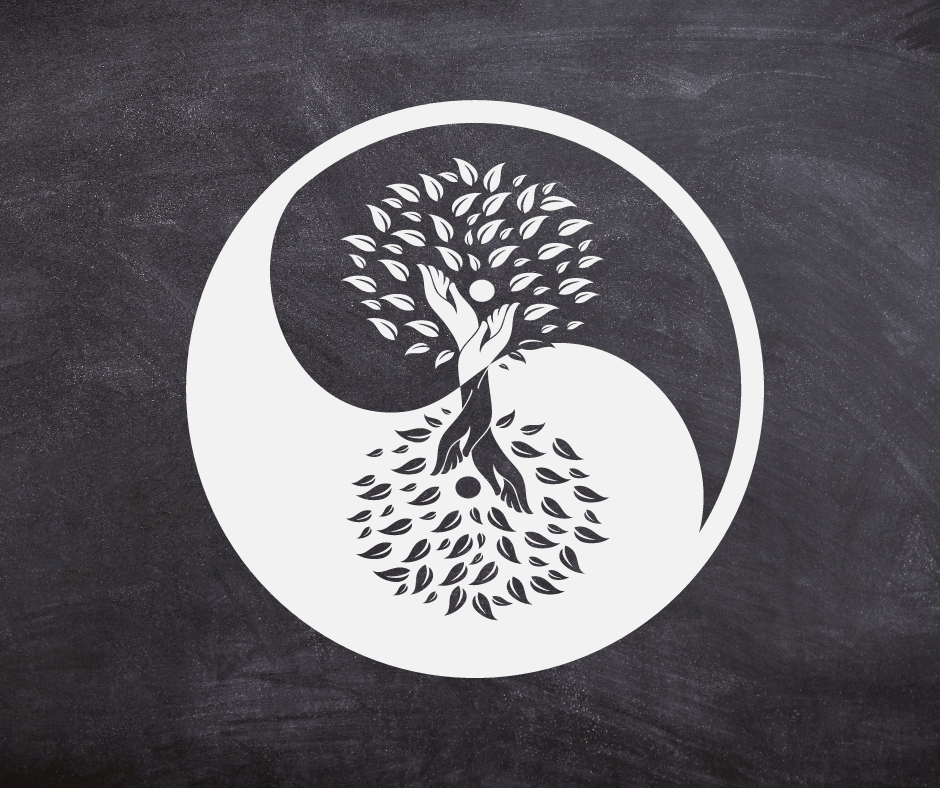







Comments & Discussion
0 COMMENTS
Please login to read members' comments and participate in the discussion.